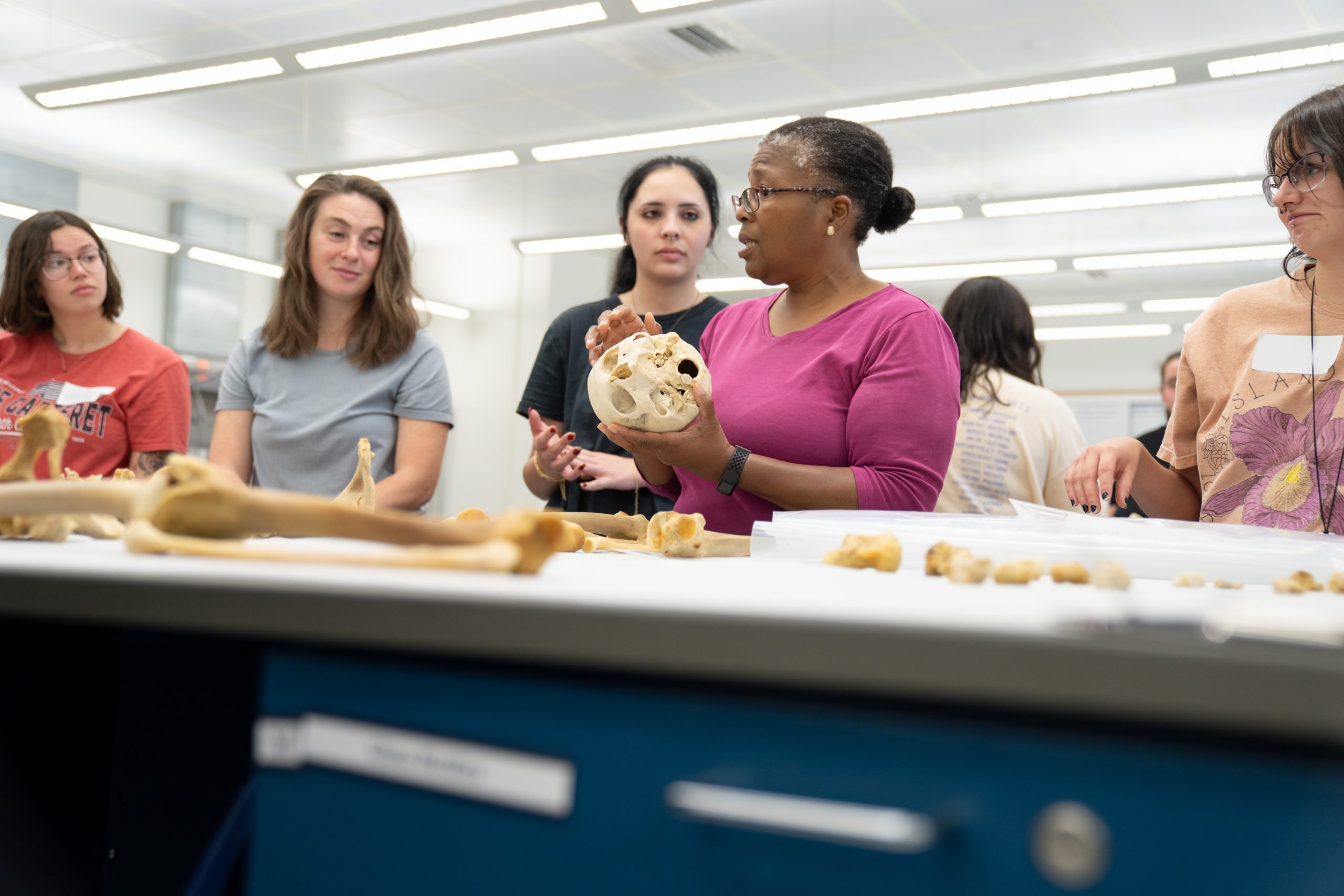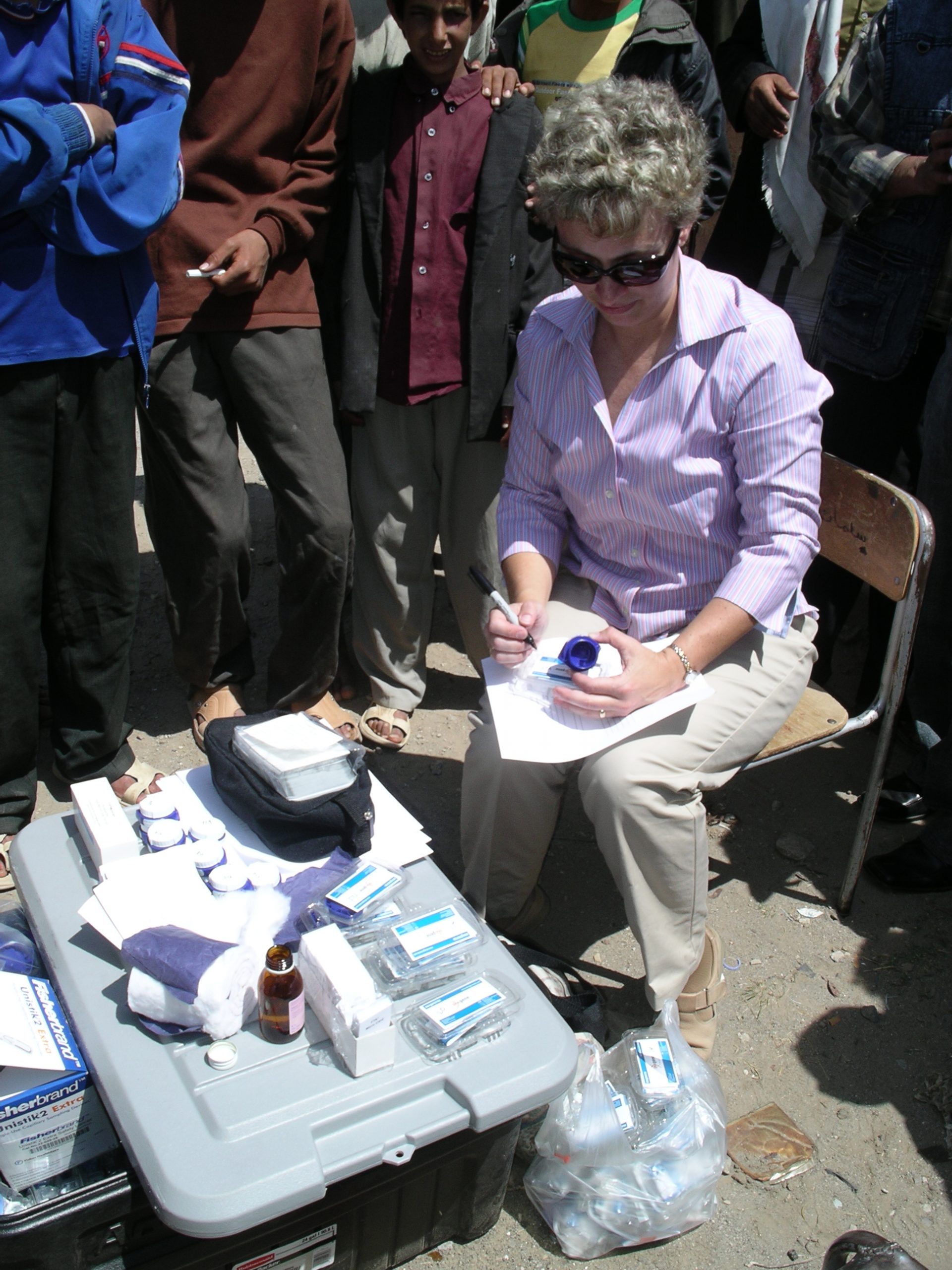 Our faculty’s research is international in scope, with projects in Bosnia, China, Democratic Republic of Congo, Malaysia, Mongolia, Panama, Russia, Suriname and Yemen.
Our faculty’s research is international in scope, with projects in Bosnia, China, Democratic Republic of Congo, Malaysia, Mongolia, Panama, Russia, Suriname and Yemen.
Academics
The Department of Anthropology offers many stimulating courses in biological, physical and forensic anthropology at both the undergraduate and graduate level. Our extensive undergraduate catalog offers a variety of interdisciplinary classes and provides opportunities for students to learn laboratory techniques and research design.
Graduate students in Anthropology at the University of Florida may study in the areas of forensics, genetics, primatology, paleoanthropology, functional anatomy, human biology and medical anthropology with the full breadth of UF resources listed below. Students can also take advantage of numerous fieldwork opportunities during their graduate careers.
Due to a large number of applications received for graduate study in biological anthropology, it is highly recommended that prospective graduate students contact a faculty member in their area of interest before submitting an application for graduate admission. The forensic anthropology program is especially competitive.
UF Biological Anthropology Laboratories
C.A. Pound Human Identification Laboratory

With Dr. Phoebe Stubblefield as Interim Director, the C.A. Pound Human Identification Laboratory (CAPHIL) is a scientific academic-based forensic anthropology laboratory engaged in service, research and teaching, providing consulting services for the Medical Examiners of the State of Florida. The laboratory employs highly standardized methods and procedures conducive to the production and documentation of scientifically sound casework while maintaining a creative and innovative intellectual atmosphere that is the hallmark of a professional laboratory. Students specializing in forensic anthropology get hands-on training in forensic case studies and have unique opportunities to study skeletal trauma and pathology.
Contact: Phoebe Stubblefield, phoebes@ufl.edu
Human Genetics Laboratory

The Human Genetics Laboratory (Dr. Connie Mulligan) provides the resources and equipment for analysis of molecular genetic data. The lab has facilities for DNA extraction, PCR amplification, DNA sequence and microsatellite analysis and variant detection. There is a separate Ancient DNA laboratory with state-of-the-art facilities for reducing potential contamination from modern samples.
Fossil Preparation and Bone Chemistry Laboratories
The Fossil Preparation and Bone Chemistry Laboratories (Dr. Krigbaum) are separate facilities for the preparation of osteological and fossil material. The “prep” lab is equipped for a variety of purposes including mechanical cleaning, microscopic analysis, molding and cast reproduction. The neighboring Bone Chemistry Lab is outfitted with an extraction line, “wet” workspace and computer workstations. Sample gases prepared in this lab are run on one of several mass spectrometers maintained by the Center for Isotope Geoscience in the Geology Department.
Skeletal Biomechanics and Morphometrics Laboratory
The Skeletal Biomechanics and Morphometrics Laboratory (Dr. Daegling) is equipped for investigations of the strength and resilience of primate bones through both in vitro strain gauge analysis and microindentation hardness testing. These properties are related to species-level variation in activity patterns with the goal of improving understanding of skeletal evolution and adaptation.
Location: Turlington Hall B373
Contact: David Daegling, daegling@ufl.edu
Virtual Morphology Laboratory
The Virtual Morphology Laboratory (Dr. DeLeon) includes computer and wet lab space. Graphics-optimized computers are equipped with post-processing software and server storage of archived digital imaging data. Access to the Nanoscale Research Facility allows generation of new imaging data. The wet lab is equipped with dissection microscopes, storage and equipment for radiopaque staining of anatomical specimens.
Contact: Valerie DeLeon, vdeleon@ufl.edu
Biological Anthropology Teaching Laboratory
The Biological Anthropology Teaching Laboratory is entirely dedicated to instructional activity. It provides computer workstations with internet access and houses the department’s osteological collection of human and nonhuman primate material. A comprehensive inventory of fossil casts spans all epochs of primate evolution.
Important Synergies and Resources
The Department of Anthropology is affiliated with the Land Use and Environmental Change Institute (LUECI) on campus, which provides an extensive database of geographic and environmental information. The larger academic setting of the University of Florida offers students a wealth of resources to draw from while pursuing graduate study. The UF Libraries are comprehensive with extensive holdings in the earth and life sciences.
Photo Credits: Mulligan Lab